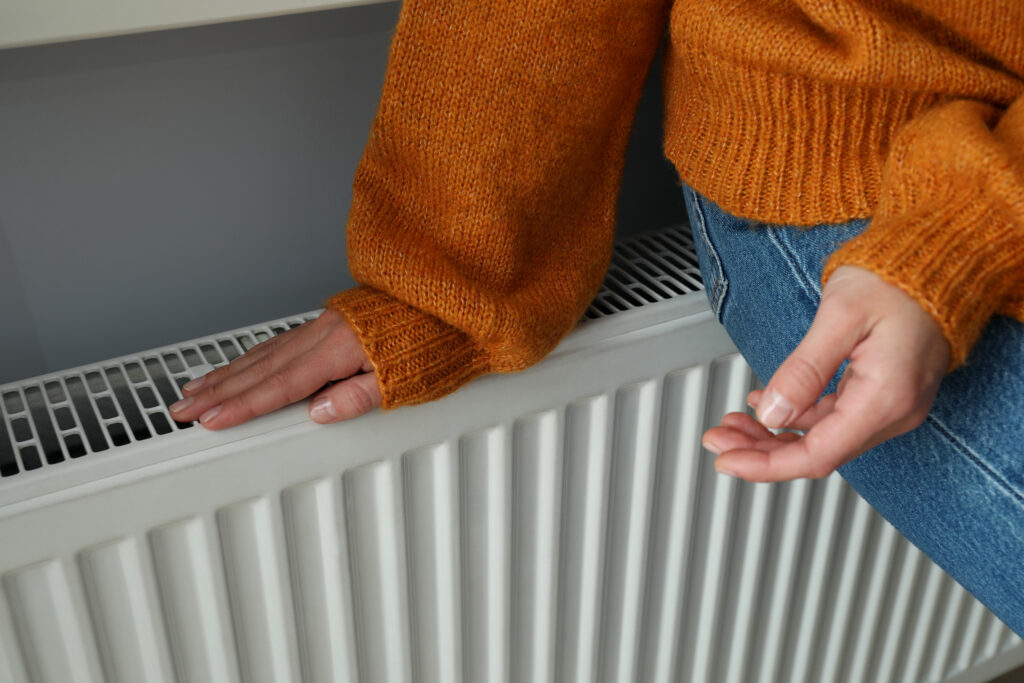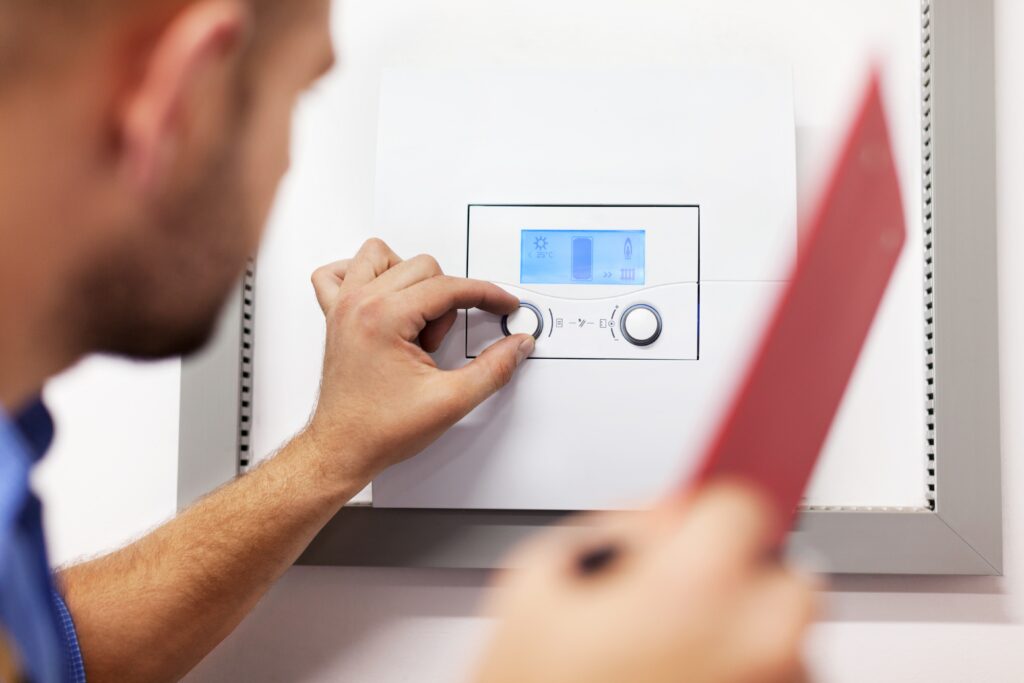Answering Why Your Boiler Is Leaking Water
A leaking boiler is a concern for any homeowner. Not only can it cause damage to your home, but it may also indicate a serious underlying issue with your heating system. If you’ve noticed water leaking from your boiler, it’s important to understand why it’s happening and what you should do about it.
A boiler leaking water can be due to various reasons, including pressure issues, faulty components, or corrosion. In some cases, it may be a simple fix, while in others, professional intervention will be required. Leaving a leak unchecked can lead to worsening damage, costly repairs, and even safety risks such as electrical faults if water seeps into nearby wiring.
In this guide, we’ll explore the most common reasons for a boiler leak, what it could mean, and the necessary steps to take.
High Boiler Pressure Leading to Leaks
One of the most common causes of a boiler leaking water from a pipe is excessive pressure inside the system. Boilers operate within a specific pressure range, usually between 1 and 1.5 bar. If the pressure rises too high, the system may release water as a safety measure.
This can happen for several reasons:
- The filling loop may have been left open, allowing too much water into the system.
- There could be an issue with the expansion vessel, which helps regulate pressure.
- The pressure relief valve (PRV) might be faulty or worn out.
When a boiler’s pressure is too high, it can force water to leak from the boiler through various components, often from the bottom of the unit or through a pipe outside. If the pressure gauge is reading too high, releasing some water from a radiator (bleeding the system) may help. However, if the issue persists, a professional engineer should inspect the system.
In some cases, a faulty pressure gauge could be misleading you into thinking the boiler is at the correct pressure when, in reality, it is too high. Additionally, if the system has recently been topped up with water, air pockets within the radiators may have led to fluctuations in pressure. These issues can sometimes be resolved by bleeding the radiators and rechecking the pressure gauge.
Ignoring high pressure in a boiler can lead to more serious consequences, such as bursts in the pipework or damage to other components. If you repeatedly experience pressure problems, it may indicate an issue with the expansion vessel, which will need professional attention.
Corrosion and Damage to Internal Components
As boilers age, their internal components may start to corrode. Corrosion weakens metal parts, making them prone to cracks and leaks. This is especially common in older systems where limescale and sludge have built up over time.
When boiler pipes leak due to corrosion, the problem is usually progressive, meaning it will only worsen over time. Corrosion often occurs when oxygen enters the system, reacting with metal parts and causing rust to form. This can be exacerbated by hard water, which contains minerals that accelerate wear on metal surfaces.
A corroded heat exchanger is one of the most serious problems caused by rust. The heat exchanger is responsible for transferring heat to the water circulating in your home, and if it becomes compromised, leaks can form. Replacing a heat exchanger is an expensive repair and, in some cases, may mean it’s more economical to replace the entire boiler.
To prevent corrosion, it’s essential to maintain your heating system properly. Regular servicing, the use of a magnetic filter, and chemical treatments can help extend the life of your boiler and reduce the risk of leaks. If your system hasn’t been serviced in a long time, it may already contain debris that could be contributing to the corrosion, so booking an inspection as soon as possible is recommended.
Leaking Boiler Pipes and Connections
If your boiler is leaking water from a pipe, the problem could be as simple as a loose connection. Over time, the vibrations and heat cycles of a boiler can cause fittings and joints to become less secure.
This often results in small, steady drips that may not seem serious at first but can lead to more significant issues if left unchecked. You might notice water leaking from underneath the boiler or even from the wall where pipework is connected.
Pipework issues can arise for several reasons, including poor installation, wear and tear, or movement in the pipes due to temperature changes. In homes with central heating systems that expand and contract throughout the day, small shifts in pipe positioning can loosen fittings over time.
In some cases, tightening the fittings may stop the leak, but it’s important to be cautious. Over tightening can damage the connection, making the issue worse. A Gas Safe engineer can assess the problem and ensure any necessary repairs are made safely. If your system is relatively new, a leaking pipe might indicate a poor-quality installation, and it may be worth checking whether the work is covered under a warranty.
Faulty Pressure Relief Valve (PRV) or Expansion Vessel
A boiler leaking water from a pipe at the bottom of the unit is often linked to the pressure relief valve (PRV). The PRV is designed to release water if the pressure inside the boiler becomes too high, preventing potential damage to the system.
If the PRV itself is faulty or stuck open, it may continuously leak even when the pressure is at a normal level. Similarly, the expansion vessel, which absorbs excess pressure, can fail over time, leading to frequent fluctuations in boiler pressure.
If water is leaking from the boiler due to a PRV or expansion vessel issue, a professional will need to inspect and replace the faulty component. These repairs should not be attempted as a DIY fix, as they require specialist knowledge and tools.
Regular boiler servicing can help prevent issues with the PRV and expansion vessel. If you’ve noticed that your system frequently needs repressurising, this may be an early sign that one of these components is failing.
Frequently Asked Questions
Is a leaking boiler dangerous?
A boiler leaking water is not immediately dangerous in most cases, but it should never be ignored. The water can cause damage to surrounding structures, increase the risk of mould growth, and in some cases, affect electrical components. If your boiler is leaking near any wiring, there is a potential risk of short circuits or electrical hazards. Additionally, if a leak is related to high pressure, it could lead to more significant damage over time. Always turn off your boiler and call a professional if you’re concerned.
Can I still use my boiler if it’s leaking?
It’s strongly advised not to use your boiler if it is leaking. Even if the leak appears minor, it could be a symptom of a more serious internal issue that could worsen with continued use. Water leaks can also lead to reduced efficiency, meaning your boiler will have to work harder to heat your home, potentially leading to higher energy bills. To prevent further damage, turn off your boiler and contact a professional engineer as soon as possible.
How much does it cost to fix a leaking boiler?
The cost of repairing a boiler leaking water from a pipe depends on the cause. Simple fixes, such as tightening a joint, may cost as little as £50–£100, while replacing major components such as the heat exchanger or expansion vessel could run into several hundred pounds. In cases where multiple issues are present, replacing the entire boiler may be the most cost-effective option. Always request a quote before proceeding with repairs.
How do I prevent my boiler from leaking?
Regular maintenance is key to preventing leaks. Annual servicing ensures components such as seals, pipes, and pressure relief valves are in good condition. Installing a magnetic filter and using inhibitor chemicals in the system can also reduce the likelihood of corrosion. If you live in a hard water area, a water softener may help prolong the lifespan of your boiler.
What should I do if my boiler is leaking from underneath?
If your boiler is leaking water from the bottom, turn off the power supply and place a container underneath to catch any drips. Do not attempt to dismantle the boiler yourself, as this could worsen the issue or void any warranties. Contact a Gas Safe registered engineer as soon as possible.




